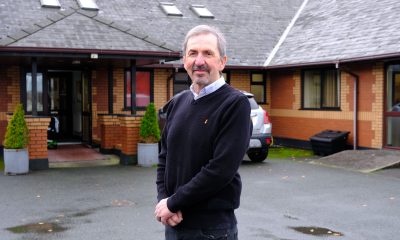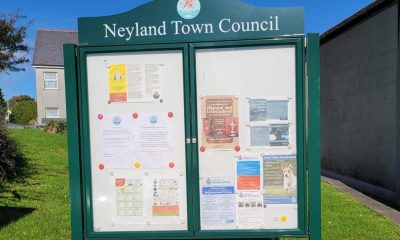Farming
FUW calls for halt to badger jab

On the rise: Cattle culling numbers up last year
THE FARMERS’ UNION OF WALES has repeated its long standing call for a science led policy to control TB in wildlife after the Welsh Government suggested the abandoned badger vaccination pilot in north Pembrokeshire could restart in 2017.
Ministerial advice provided to the Welsh Government in 2012 suggested vaccination in the north Pembrokeshire Intensive Action Area (IAA) could cost Welsh farmers and the taxpayer an additional £3.5m compared with a badger cull.
“The results after four years of badger vaccination in the IAA appear to support the original assessment that vaccination would cost farmers and the taxpayers millions and save the lives of far fewer cattle than badger culling would have done,” said FUW Deputy President and north Pembrokeshire farmer Brian Thomas.
“Based upon trials in other areas, we could have expected a thirty or forty percent reduction in cattle herd TB incidences by now, had the original plan to cull badgers gone ahead. Instead, matters in the area are no different to other comparable areas where badger vaccination has not taken place.”
Mr Thomas was speaking after attending a Welsh Government briefing session where the results of Animal and Plant Health Agency (APHA) modelling of badger vaccination strategies were presented.
“A key focus of the modelling work carried out and the subsequent statement made by Welsh Government indicates a possible return to badger vaccination in 2017. In our view that would mean returning to a pointless and costly exercise which has yet to show any positive impacts, whereas badger culling as originally planned would already have resulted in significant reductions in TB incidences.”
Mr Thomas said there was also no guarantee that the BCG vaccine used on badgers would be available by 2017.
“There is currently a global shortage of BCG vaccine, and given that one badger dose can vaccinate twenty infants in regions where human TB is a huge problem, such as Africa, it would be immoral to deplete global vaccine stocks by vaccinating badgers.”
The average cost of vaccinating each badger caught in the north Pembrokeshire Intensive Action Area has been around £700.
“In the 12 months to the end of September 2015 the number of cattle culled in Wales due to TB was 7,380, an increase of 25 percent on the equivalent period to September 2014.
“That’s an equivalent to 20 cattle culled every day of the week.”
Mr Thomas said farmers were doing their part in terms of controlling the disease, and accepted that cattle which represent a risk need to be destroyed.
“Welsh Ministers need to recognise that other animals which represent a risk should also be controlled, and that to avoid the issue by spending millions on vaccinating badgers will simply make matters worse in the long run.”
Mr Thomas’s words appear to have added force following the announcement by the Welsh Government that the effectiveness and integrity of the vaccination scheme would be unaffected by its suspension for the fifth year of its five-year duration.
Following the decision to suspend sourcing the vaccine due to a global shortage, the Animal and Plant Health Agency (APHA) was commissioned to identify the likely impact the non-availability of Badger-BCG in 2016 would have on the vaccination project within the Intensive Action Area (IAA) in West Wales.
The report concludes that despite not being able to complete the fifth and final year, four years of badger vaccination would achieve a reduction in prevalence of TB in badgers in the IAA. APHA modelling showed that vaccinating for four years, missing year five, and returning to vaccinate in year six is not different from vaccinating for five consecutive years.
The Deputy Minister said: “I am grateful to APHA for completing the modelling work so swiftly and to landowners within the IAA for their continued co-operation.
“The modelling APHA carried out suggests that a gap of one year after year four is no different from vaccinating repeatedly for 5 years.
“We will continue to engage with the agriculture industry, wider rural communities, veterinary profession, Eradication Boards, and the Industry Advisory Group in the Intensive Action Area.
“We will also continue to evaluate the impact of all interventions within the IAA, including vaccination, cattle surveillance and controls and the enhanced biosecurity measures.”
Farming
Special farming role for senior Pembrokeshire councillor
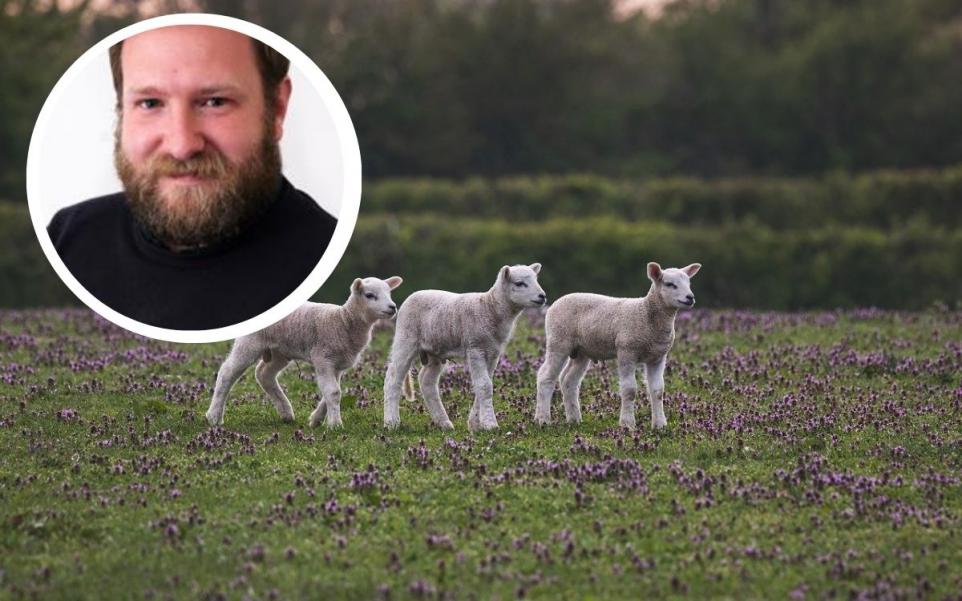
AN OFFICIAL special farming role for Pembrokeshire’s deputy leader is to be established following a call made to full council, the first time the council has had such a role for a senior member.
In a question to council leader Cllr Jon Harvey, heard at the December meeting of Pembrokeshire County Council’s full council meeting, Conservative group leader Cllr Di Clements asked: “With the recent changes in the budget from the UK Labour Government on Inheritance Tax and Agricultural Property Relief, many Pembrokeshire farmers are feeling concerned for the future of their family farms, many in Pembrokeshire which have been in the same family for generations.
“I have always found it disappointing that in all the years I have been a councillor, and the major contribution farming has to this county’s economic, cultural and environmental well-being, there has never been a Cabinet Member’s title with rural affairs or farming, or agriculture within it.
“To show that this council recognises the importance of agriculture, and the hundreds of millions of pounds generated by farming, will the Leader consider including it in one of the titles of his Cabinet Members’ portfolio?”
Responding, Cllr Harvey said: “I full share your perspective; it’s true this council has never had a Cabinet member with this role; however I can reconsider, I regard all aspects of rural life as vitally important.”
He told members farming and rural affairs came under the portfolio of the deputy leader [Cllr Paul Miller], adding: “we’re all aware of the changing aspects of rural life at the moment, we do have a rural affairs champion in Cllr Steve Alderman, but I’ve had a conversation with the deputy leader and agreed to review this title to reflect the importance of the role and will happily make an announcement in the next few days.”
Cllr Clements responded: “These words say a lot, it shows this council recognises the importance of the most constant and probably most important business in the county.”
Farming
Call for Pembrokeshire to oppose farming inheritance tax withdrawn
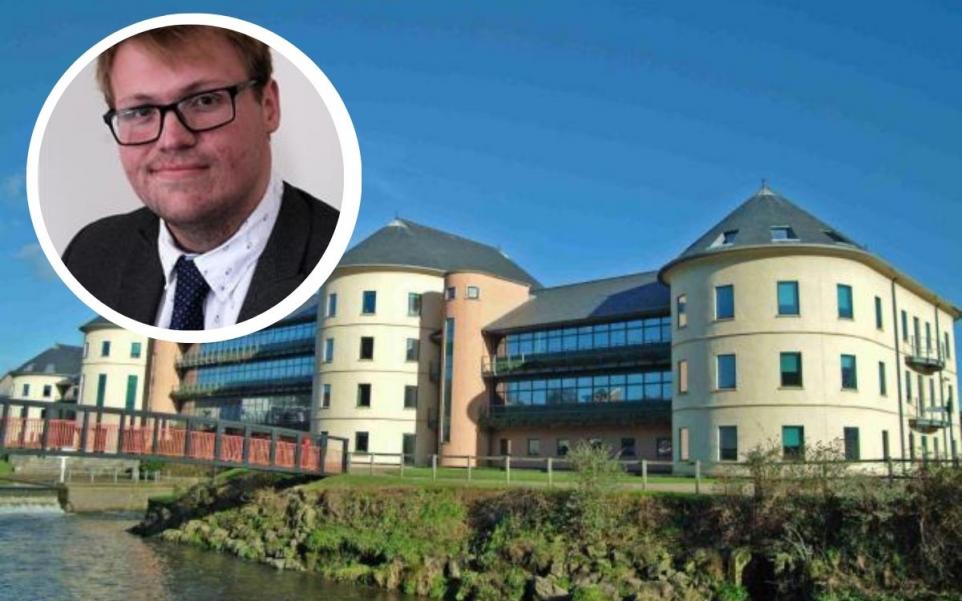
A CALL on Pembrokeshire County Council to oppose government changes to inheritance tax affecting family farms has been withdrawn, but its proposer hopes his motion will return to a future meeting.
At the Budget, Chancellor Rachel Reeves announced farmers would have to pay inheritance tax on agricultural property and land worth more than £1 million at a rate of 20 per cent, with a £3m threshold for couples passing on their farms.
This compares to a 40 per cent rate on other estates.
A Notice of Motion by Councillor Aled Thomas, ‘relating to Protecting British Family Farms and Preserving Rural Communities’ was to be heard at the December 12 meeting of Pembrokeshire County Council’s full council meeting.
Cllr Thomas, who stood as a Conservative candidate for Ceredigion-Preseli in the 2024 general election, asked that: “Pembrokeshire County Council notes its concern to the proposed changes to inheritance tax announced by the Labour Government in the recent Autumn budget, which would scrap Agricultural Property Relief (APR).
“APR has been instrumental in allowing British family farms to remain intact across generations, supporting food security, sustaining rural communities, and aiding environmental stewardship. This tax is estimated to impact over 70,000 family farms, leaving the average farming family with a tax bill of at least £240,000, which will force many to sell portions of their land or close entirely, paving the way for corporate ownership over family ownership.”
It called on the council to resolve to “oppose the Labour Government’s changes to inheritance tax affecting family farms,” to “advocate for the exemption of family farms to preserve the UK’s food security, rural communities, environmental initiatives,” and to “commit to maintaining its county council farms portfolio, particularly to encourage younger and new generations of farmers into the industry”.
It finished: “This council urges all councillors to stand with Britain’s family farms, to support our rural communities, and to protect the environment by formally rejecting this proposed ‘family farm tax’.”
At the December 12 meeting Presiding Member Cllr Simon Hancock informed members the notice had been withdrawn from the meeting.
Speaking after the announcement, Cllr Thomas, himself a farmer, said: “There was a dispute whether I should have been allowed to submit it as I am a farmer, so I took advice from the monitoring officer that I should withdraw it until I can get a dispensation from the standards committee to speak on the matter.”
He said he hoped to get the motion resubmitted to be heard at the next council meeting.
Farming
Welsh Lamb shines at the Winter Fair Taste Awards
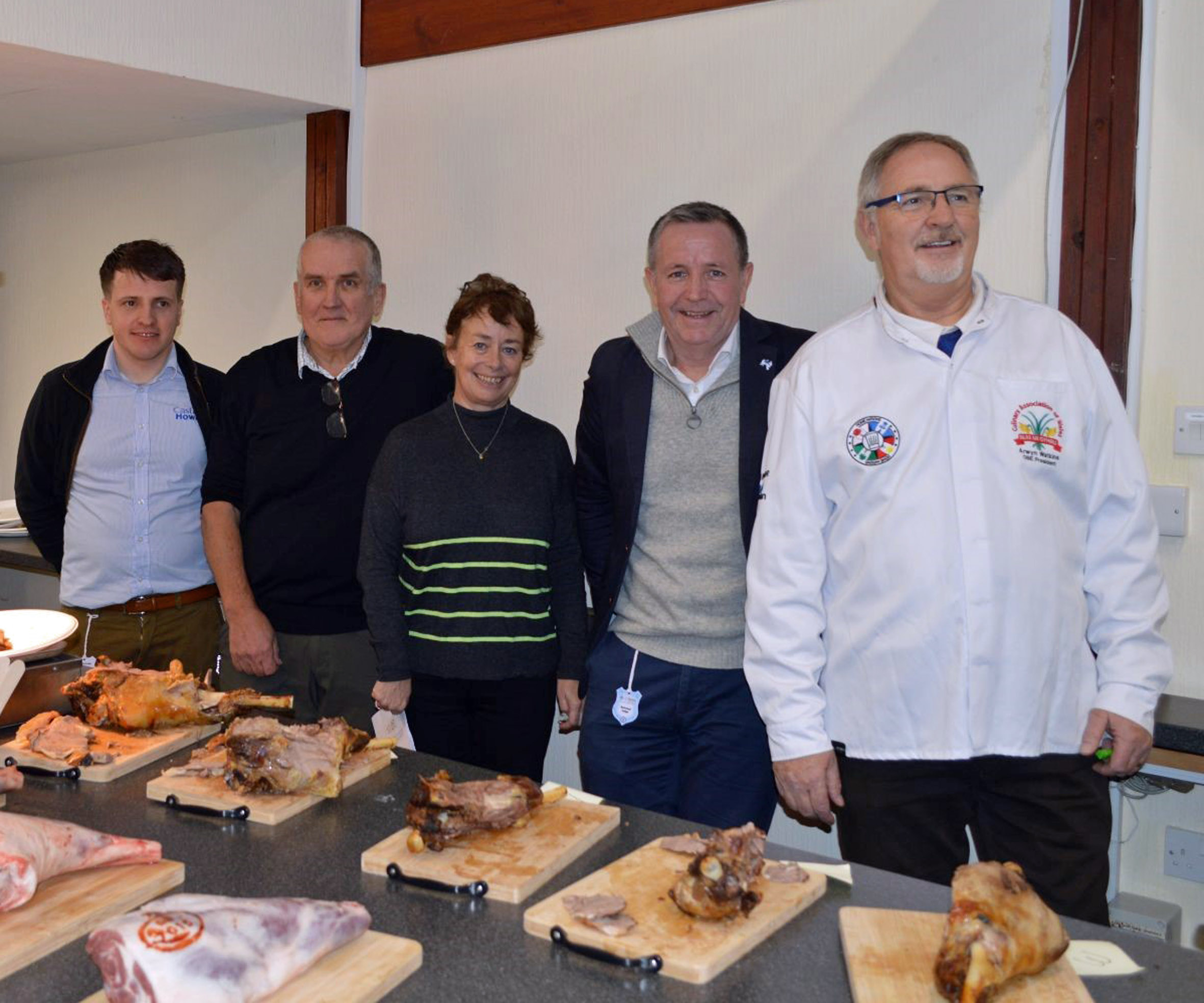
THE ROYAL WELSH WINTER FAIR TASTE AWARDS, showcasing the finest native lamb breeds of Wales in a celebration of sustainability, flavour and culinary excellence, were hosted by the Royal Welsh Agricultural Society (RWAS).
The awards, held in collaboration with Cambrian Training Company, the Culinary Association of Wales and the National Culinary Team Wales, spotlighted the exceptional quality of Welsh Lamb and its unique characteristics.
The competition aimed to promote native Welsh Lamb breeds and emphasise their distinct flavours, encouraging chefs, businesses and consumers to consider Welsh Lamb a premium product.
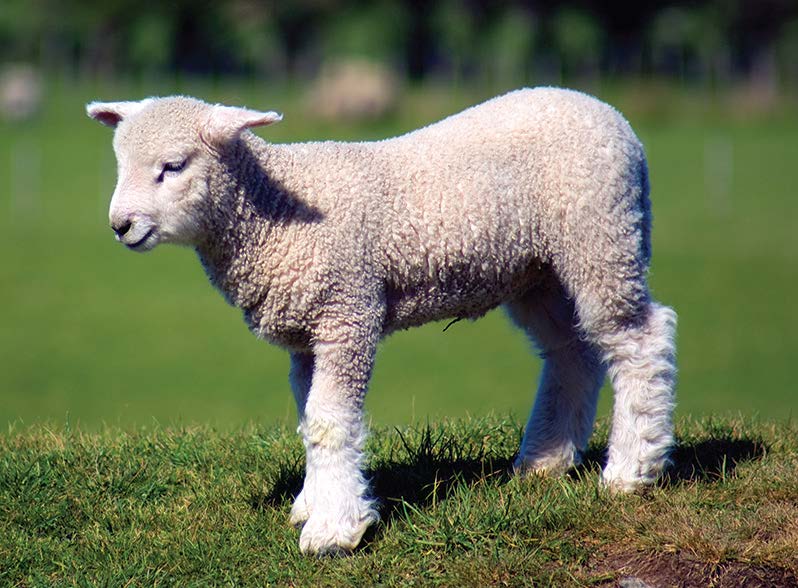
The RWAS says the competition provides a vital platform to showcase the exceptional flavours of native Welsh Lamb breeds while promoting sustainable farming practices.
These lambs are grass-fed, raised in Wales and come with full traceability from farm to fork. The initiative aims to highlight the story behind the meat and the dedicated efforts of farmers in preserving these breeds.
Societies representing seven native Welsh Lamb breeds participated in the competition, held at the Cambrian Training Company building on the Royal Welsh Showground at Llanelwedd.
Each breed’s lamb was expertly cooked by chefs and presented to a distinguished panel of judges, including Dilwyn Evans, a vet featured on TV series ‘Clarkson’s Farm’, Steven Owen, Castell Howell development chef, Neil Fenn, Professor Rhian Goodfellow, OBE and Arwyn Watkins, OBE, executive chair of Cambrian Training Group.
The breeds showcased included Badger Face Welsh Mountain (Torddu and Torwen), Balwen Welsh Mountain, Black Welsh Mountain, Clun Forest, South Wales Mountain, Llanwenog and Pedigree Welsh Mountain.
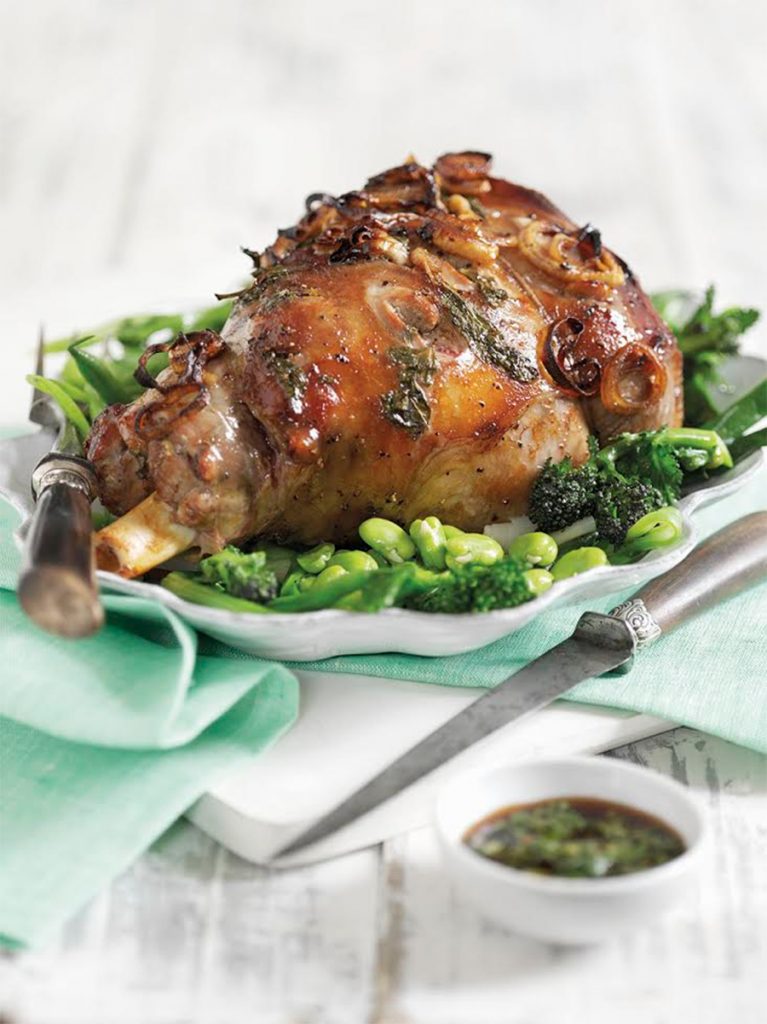
Each lamb had been bred, born and reared in Wales, ensuring sustainable and traceable farming practices.
The awards highlighted the diversity among native Welsh Lamb breeds, from the Torddu and Torwen’s hardy nature to the Llanwenog’s docile temperament and premium meat quality.
Farmers and breed societies demonstrated the unique traits of their lambs, such as flavour, sustainability and adaptability to diverse farming environments.
Arthur Davies (South Wales Mountain) and I. T. Davies & Son (Clun Forest) were declared joint winners of the Royal Welsh Winter Fair Taste Awards. Both breeds impressed the judges with their remarkable flavour, tenderness and quality, showcasing the very best of Welsh Lamb.
The event emphasised the importance of promoting the culinary excellence of Welsh Lamb alongside its visual appeal in show rings.
Guest judge, Dilwyn Evans said: “It has been an absolute honour to judge the Royal Welsh Winter Fair Taste Awards and experience first-hand the superior taste of native Welsh Lamb.
“This exceptional meat not only embodies the rich heritage and dedication of Welsh farming but also highlights the importance of preserving these unique breeds and the sustainable practices behind them.”
The RWAS thanked the judges and Cambrian Training Group for their continued support, helping ensure the lambs were cooked to perfection for the competition.
With the awards, Wales has cemented its position as a leader in premium lamb production, bringing the exceptional flavours of its native breeds to the forefront of the culinary world.
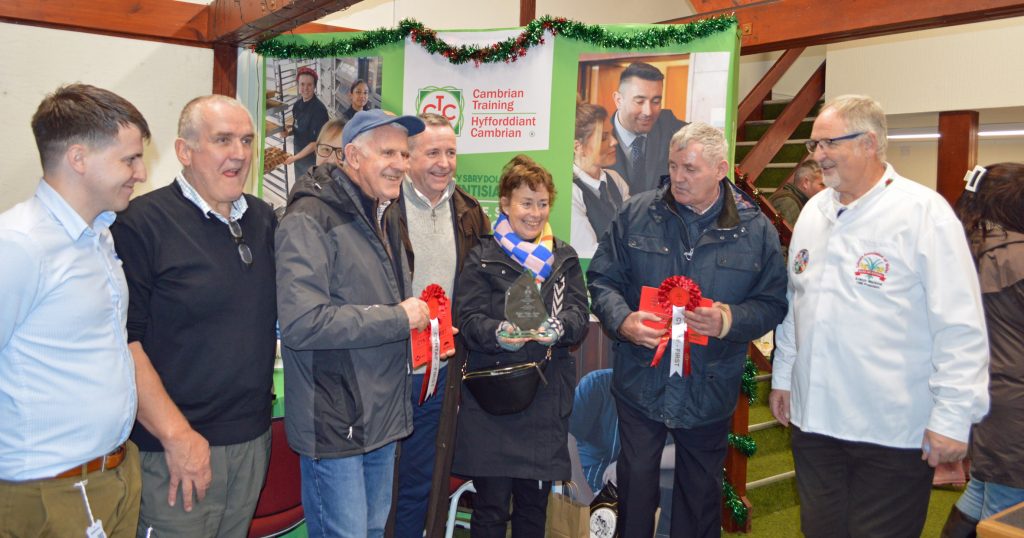
Pictured top of page: Taste Test joint winners, Arthur Davies (South Wales Mountain) and I.T . Davies (Clun Forest) with the judges.
-

 Top News4 days ago
Top News4 days agoPembrokeshire man jailed after repeatedly punching pregnant wife
-
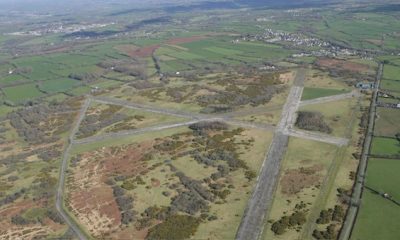
 Top News4 days ago
Top News4 days agoPolice investigate dogs seen persistently chasing sheep on Pembrokeshire airfield
-

 News2 hours ago
News2 hours agoFerry accident causes delay on new Dublin-Fishguard route
-
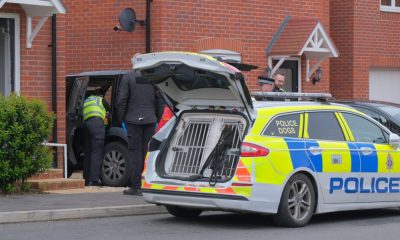
 News5 days ago
News5 days agoDyfed-Powys Police launches attempted murder investigation
-
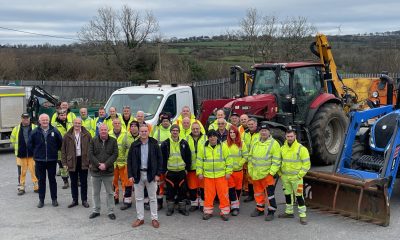
 News5 days ago
News5 days agoHeroes of the storm: How Council workers rallied during rare red wind warning
-

 Business6 days ago
Business6 days agoFerry traffic surges at Pembroke Dock due to Holyhead closure
-

 Farming7 days ago
Farming7 days agoCall for Pembrokeshire to oppose farming inheritance tax withdrawn
-

 Top News4 days ago
Top News4 days agoMilford man dealt ‘persistent’ blows on girlfriend after urinating in flat











